Women’s Herstory Month Connects Trinity Community with Global Women’s Rights Movement
Trinity College recently welcomed Iranian-American activist and journalist Masih Alinejad as the keynote speaker for the College’s series of Women’s Herstory Month events.
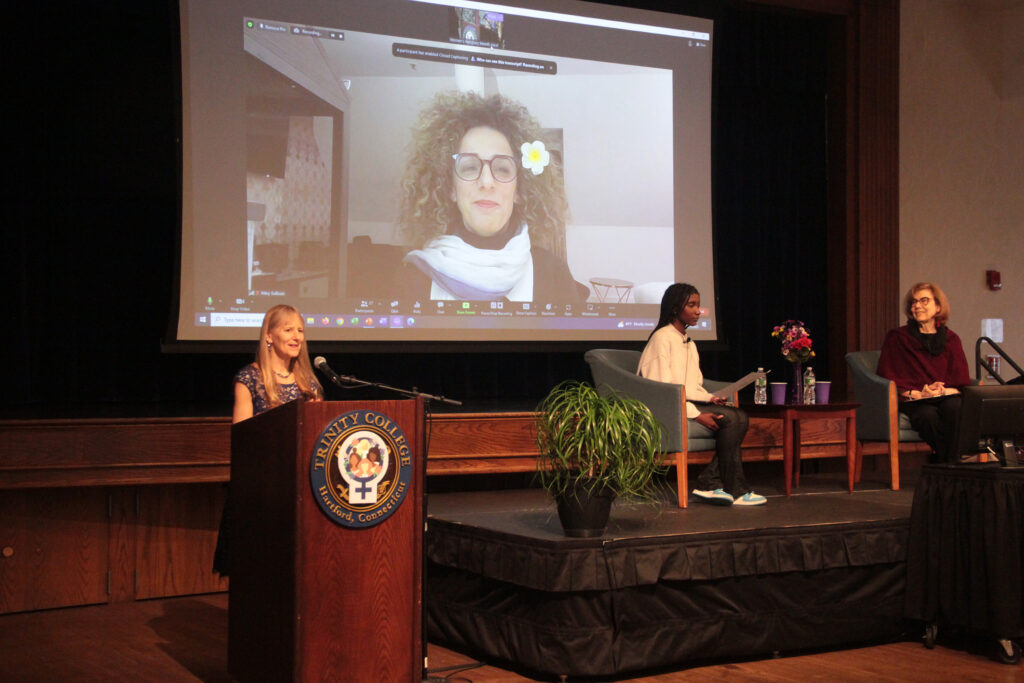
“Global Rights for All Women” was a conversation with Alinejad led by Professor of International Studies Janet Bauer and Multicultural Affairs Council Vice President Kristina Kendall ’23. Alinejad participated remotely in the program, held March 15 in the Washington Room of Trinity’s Mather Hall.
Named as one of the 2023 Women of the Year by Time Magazine, Alinejad calls for action against Iran’s ruling regime and its impact on women’s rights. Since her exile from Iran in 2009, she lives in the United States and continues her work through her viral social media campaign, “My Stealthy Freedom,” to fight against the compulsory hijab by inviting women to post themselves without their hijabs as a symbol of freedom with the hashtag #WhiteWednesdays.
Alinejad said, “My Stealthy Freedom was born by women inside Iran sharing their own videos, their own stories, so that actually shows you the power of sharing your personal stories that can encourage the rest of society.”
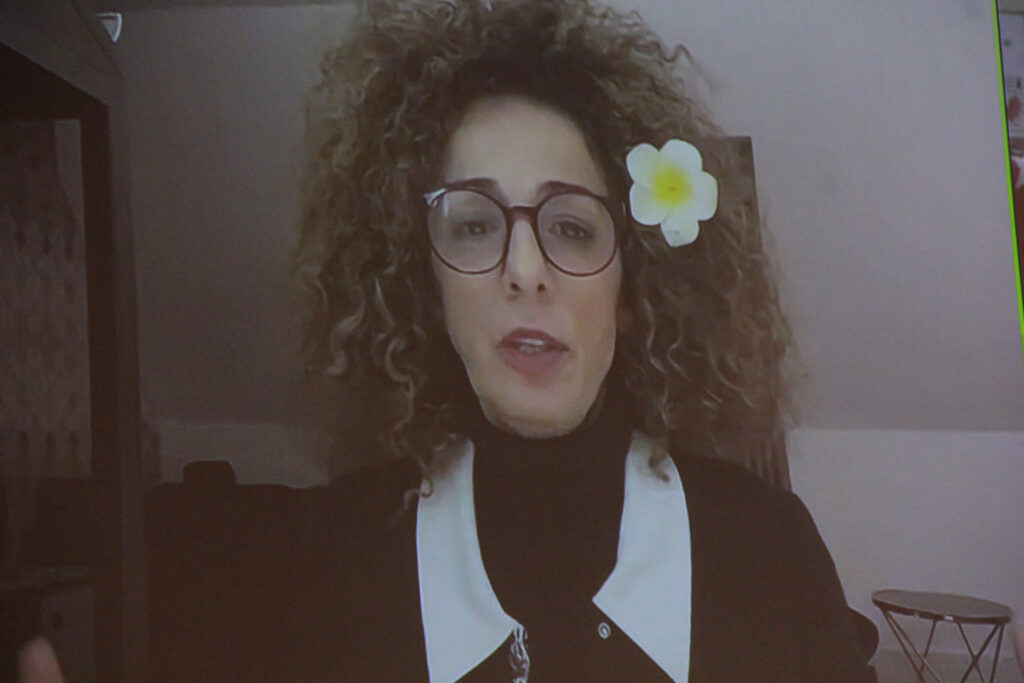
Alinejad advocated for media engagement to spread awareness of women’s oppression and bring an active voice to those who are institutionally discriminated against in their culture. In response to a question asked in the pre-event discussion at Trinity’s Women & Gender Resource Action Center (WGRAC), Alinejad said, “As a journalist, I try to get the attention of the mainstream media so that when women are fighting, when women are warriors, they can be in the headlines of our media. We cannot just wait for them to be victims, to victimize them, in our stories.”
Along with using the media to protest the treatment of women and dissenters of regimes in countries like Iran and Afghanistan, Alinejad emphasized the need for U.S. officials to recognize women’s oppression on a global scale. “We, the women of Iran and Afghanistan, launched a campaign to ask the leaders of democratic countries to expand the definition of apartheid in all international laws to include gender,” Alinejad said.
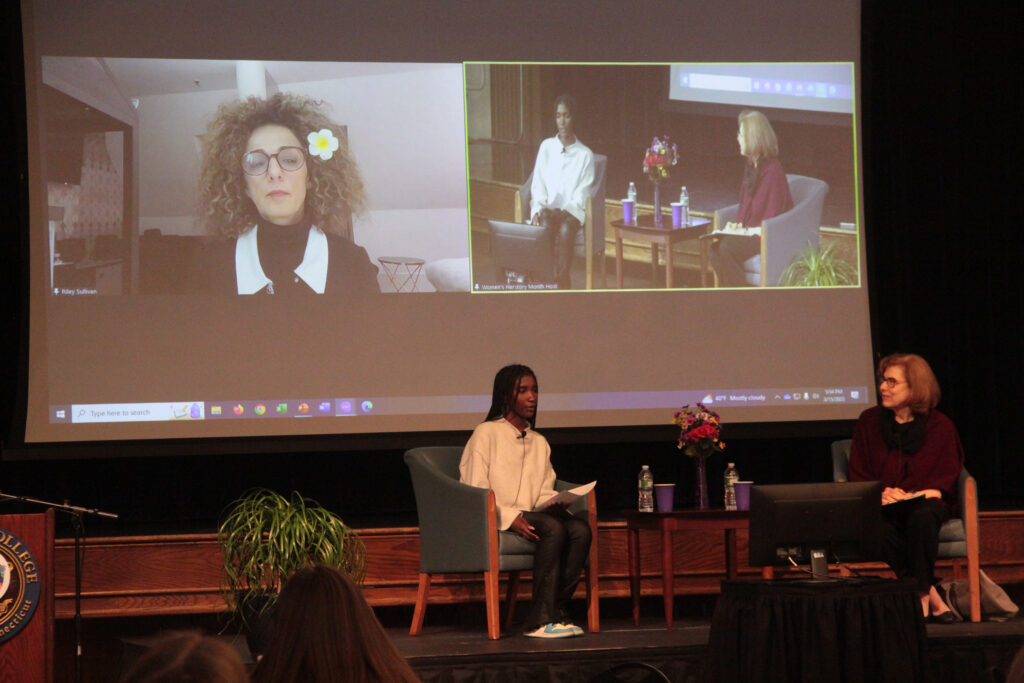
Throughout the discussion, Alinejad encouraged the Trinity community to use their resources to support women around the world. Alinejad said, “I believe in you because the school girls, university students, and young women in Iran are leading the revolution. You can do this as well; you can be an example for your leaders to be supportive of pro-democracy in Iran and Afghanistan.”
One of the attendees, Parnian Ghaemi ’25, a political science and economics major, participated in the audience Q&A with Alinejad. After the event, Ghaemi shared, “I’ve been following her since she started her campaign. Most of my family still lives in Iran and she has been a voice for us all. My mom started following her a lot, and I learned about who she is and what she does. Especially now during the recent protests, she’s been one of the key voices for people that have it very difficult in Iran.”
The keynote speaker event aimed to connect the global women’s rights movement to the Trinity community’s experiences and activism. Laura Lockwood, director of WGRAC, said, “We hoped students would feel heard, seen, and empowered, and that Masih’s passion, courage, and outspokenness would spark the inspiration to work for social justice in whatever ways that they are able.”
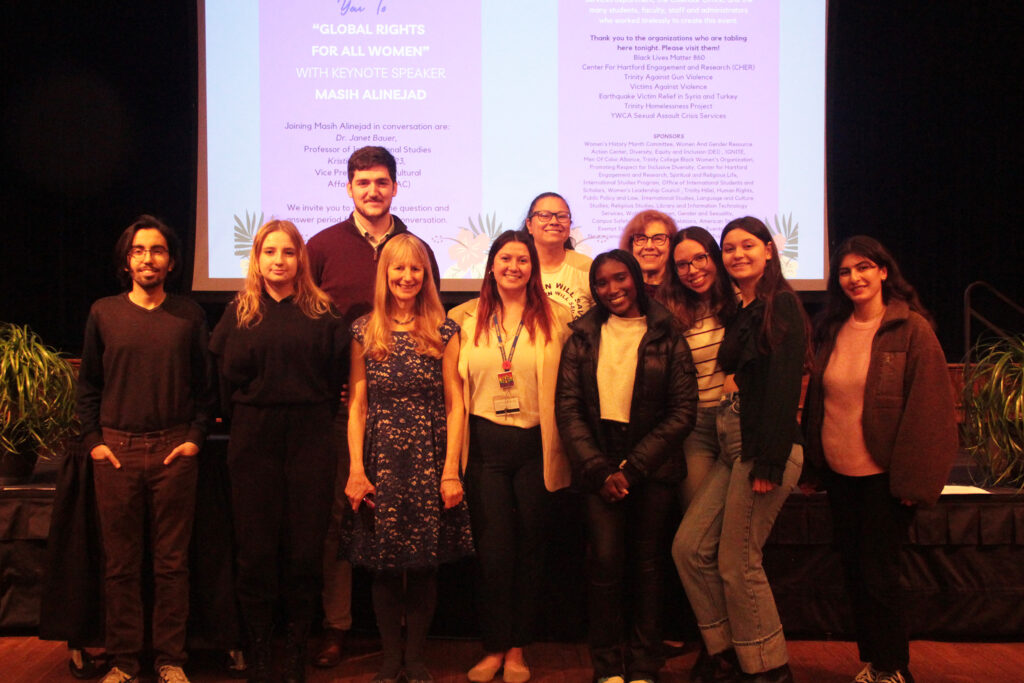
This year’s Women’s Herstory Month theme of “Telling Our Stories” presented the Trinity community with an inclusive representation of women’s experiences through many events and activities. Lockwood helped lead the Women’s Herstory Month Committee, which collaborated with Trinity students and organizations to create the programming that encapsulates the diverse identities of women on campus.
“Something that stood out to me was the amount of women who were working together on campus to get things done,” said committee member Izabella Bautista ’26. “It was really cool to see many women create spaces to talk about issues, like period poverty or planning a bake sale for Planned Parenthood. I think all those things were incredible in touching on different aspects of issues that women are facing.”
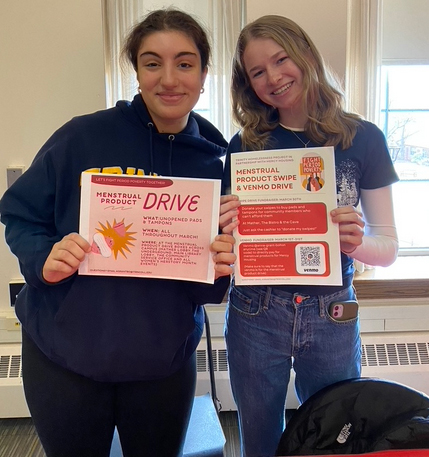
Along with her work in budgeting and outreach to Trinity organizations, Bautista worked with history major Savannah Brooks ’26 as part of the social media team, including hosting “Trivia on the Long Walk” on TikTok, where they asked students about their knowledge of women’s history at Trinity.
“I noticed a lot of people around me are asking me more about what events are coming up and what they could help participate in because they’ve seen the video,” Bautista said. “I definitely have seen a peak interest in Women’s Herstory Month and that people are more excited to attend these events.”
Brooks and Bautista also helped organize the “WHM Trivia Night” event and the social media promotion, the latter helped by Instagram posts of legendary women storytellers by WHM committee member Mya White ’25. Brooks said, “Especially at Trinity, women’s history and women’s empowerment do not reach a lot of students, so getting on their level and doing something on social media is very important.”
Other events held this year as part of Women’s Herstory Month included Women Loving Women with the Queer Resource Center, the All Things Period Party, and the Women’s Appreciation Brunch hosted by the Men of Color Alliance (MOCA).
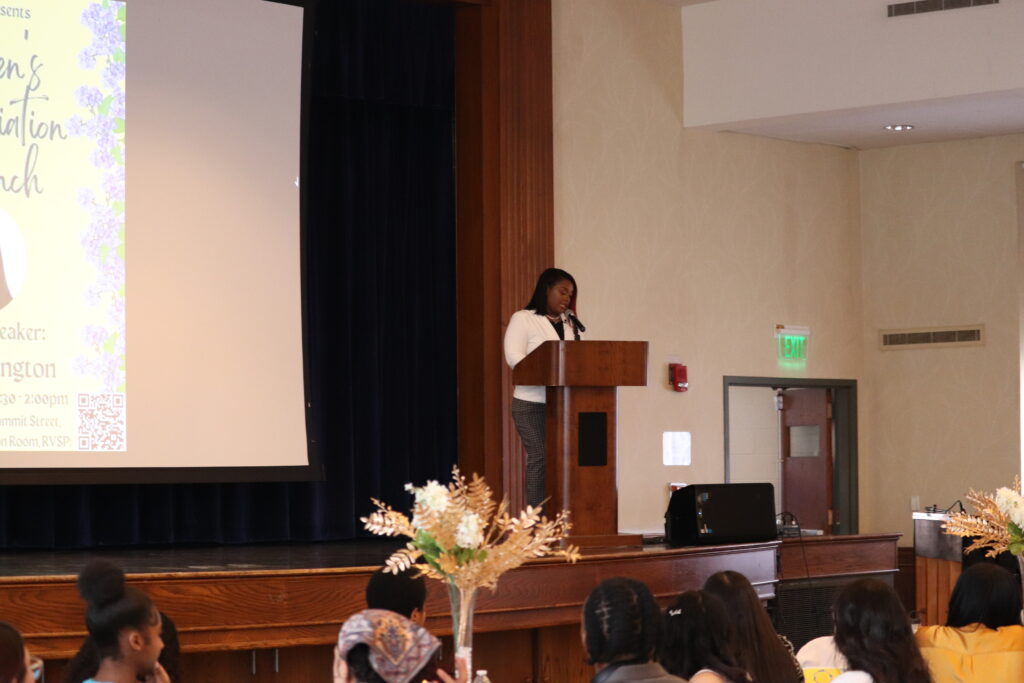
The events and activities also spread awareness of the global challenges that Alinejad and the Trinity community may share within their backgrounds.
Lockwood said, “Through Women’s Herstory Month programming, the campus learns that all forms of systemic and structural oppression—inclusive of misogyny, white supremacy, heterosexism, anti-Semitism, Islamophobia, and transphobia—impacts all. We have a responsibility to be educated, address our learned bias, then take action, including helping others do the same. Women’s Herstory Month events inspire one to find their voice, speak up and speak out, and join or form collective movements for change and justice across known and imagined borders and barriers.”
Bautista added, “I hope that we build a safer community on campus and that people who hope to come to Trinity can see there are spaces for them on campus where they can feel included and can talk to other people about their experiences at Trinity with their identity.”
